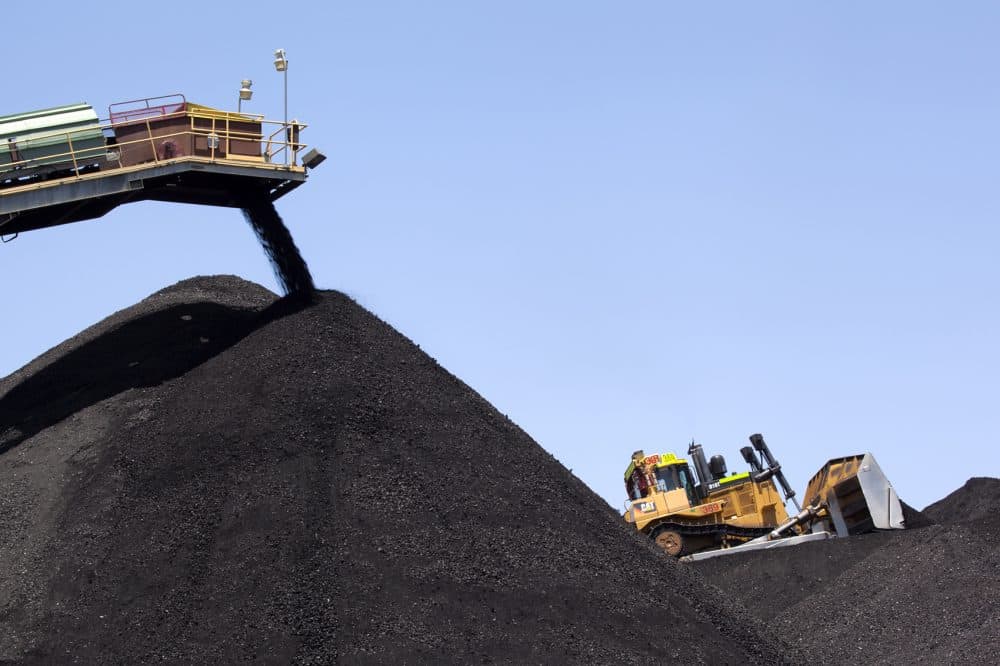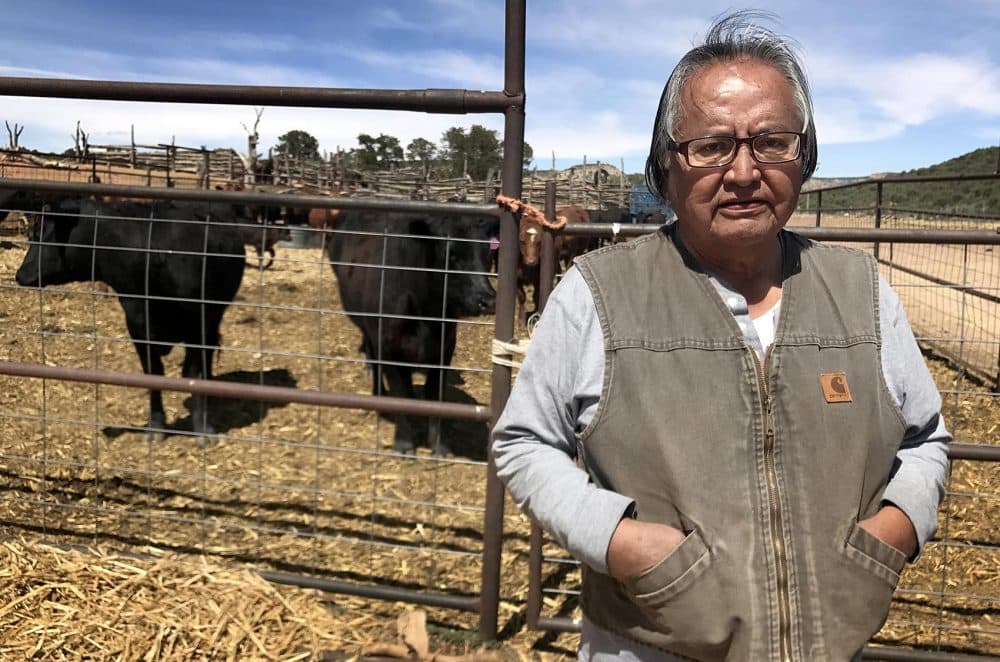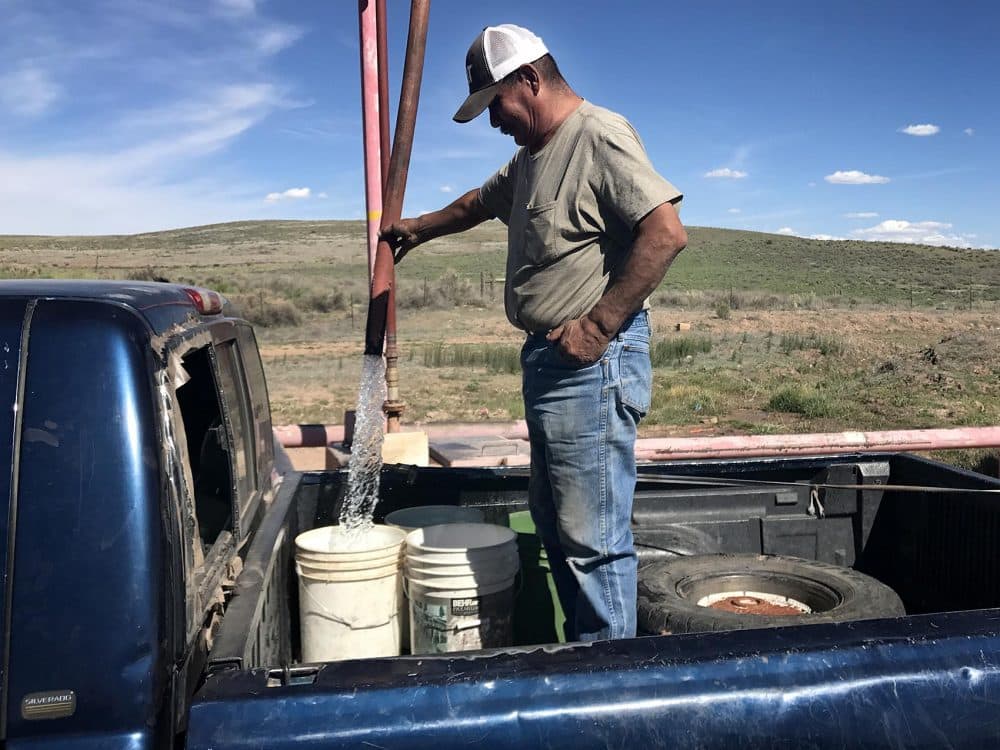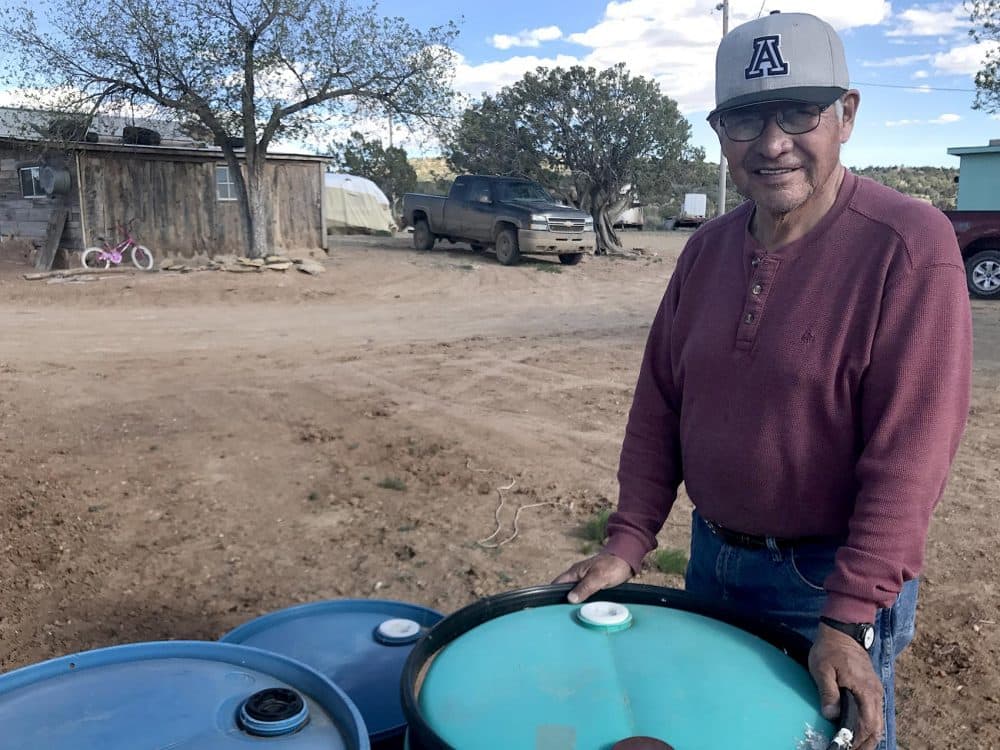Advertisement
Earth, Coal And Water: Navajo Nation In Flux Over Future Of Natural Resources
Resume
The Navajo Nation in northern Arizona is scrambling to keep a coal-fired power plant and coal mine from closing in 2019.
Tribal officials have asked the Trump administration for help to keep the Navajo Generating Station open.
Earlier this year, the plant’s operator said it can no longer compete with the low cost of natural gas and announced it would close the plant two decades earlier than planned.
That puts the fate of Peabody Energy's Kayenta coal mine in question, too. It supplies the power plant with the fuel it needs to make electricity.
The news has caused a growing sense of anxiety among the Navajo and Hopi tribes. Both rely on the operations for hundreds of high-paying jobs and millions of dollars in lease royalties on their impoverished reservations.
On the other hand, Navajos who believe in the sanctity of the Earth and water say the closure can't come soon enough.
Neighbor To A Coal Mine
Herb Yazzie has lived about a mile away from the Kayenta mine on the Navajo reservation for much of his life.
“Let it expire,” he says. “We’ve had enough of the destruction and the pollution.”
Yazzie raises cattle on his ranch, which is hours away from the nearest city over deeply rutted dirt roads. He says blasting at the mine creates dust that settles over his property like a fog, and makes it hard for children and the elderly to breathe.

These environmental issues are more important to him than the jobs that will go away when the power plant closes. The real wealth is in the land, he says, and many Navajos believe the land is sacred.
“As far as I know there are no sacred songs for coal,” Yazzie says in front of the corral where he keeps his animals. “There are no prayers for coal.”
The Tribes' Dilemma
But there is no question that the mine and the power plant are integral to other people’s lives on the reservation. According to the mine’s owner, Peabody Energy, Native Americans hold nearly every one of the mine’s 325 skilled jobs.
Peabody has warned operators against making long-term decisions based on the spot price of a volatile commodity like natural gas. But a company spokeswoman said the company is willing to help keep the operation going by lowering the price of the coal it sells to the power station.
She also said Peabody works hard to be a good neighbor to people like Yazzie by restoring the land to its natural state and providing locals with free drinking water — a much-needed asset in a remote area where many homes are without plumbing.
“It’ll be a misfortune for us,” says John Davis, referring to the possibility of the mine closing. He stood in the back of his pickup truck, filling up buckets with drinking water from a Peabody well.
“A lot of people, they depend on it,” his wife adds from the front seat. The Davis family makes this trek to the well every other day.

But the impact extends far beyond any one family. Much of the government revenue for both the Navajo and Hopi tribes comes from lease payments and royalties. That money makes up 80 percent of the Hopi’s general fund, according to the tribe’s executive director, Daniel Honahni.
From an office inside tribal government headquarters, he says that coal is the only source of economic development that the Hopis have ever really considered.
“The information was we had a major supply of coal and there’d always be a need for it until 2044. I’m not saying we were complacent — we have difficulty in doing our own economic development," Honahni says.
He adds that losing that much revenue would prompt government layoffs and lead to cuts in services for the elderly and children — a terrible outcome on a reservation where more than half the population is already unemployed.
“We would end up with basically nothing,” he says.
Any Extension 'Will Deny Us Our Water'
But any talk of lost jobs misses the bigger picture, according to Percy Deal. He lives on a quiet hillside where the wind has room to run.
Deal, like John Davis, must drive many miles to get clean water to wash the dishes, bathe himself and drink. His stone home shows visible signs of aging and the dirt roads leading to his front door become impassable in a heavy rain.

Pointing to all this, he says revenue from the mine and the power plant has never benefited him.
In fact, he says both operations are an insult. While he collects rainwater in 55-gallon drums, the mine and the plant combined use billions of gallons of water every year to serve people far away from the parched hillside.
“The water belongs to us,” Deal says. “And it doesn’t do me any good to have Peabody using it. I don’t get a drop of it.”
So Deal celebrated the news that the power plant was shutting down, and says he hopes the mine stops digging coal as soon as the plant goes dark. As of now, Navajo officials appear confident the plant will stay open through 2019. They’re still lobbying Washington for help and looking for a plan to keep it running beyond then.
“Any extension will continue to deny us our water,” Deal says. “I want them to go at the earliest time."
This article was originally published on May 11, 2017.
This segment aired on May 11, 2017.
